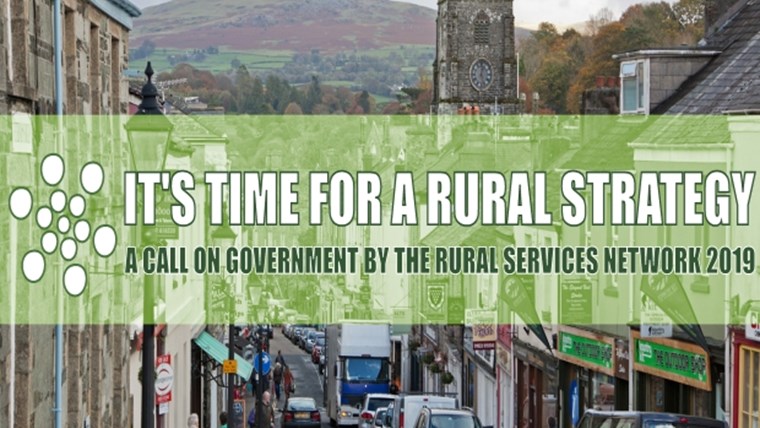Government urged to produce new rural strategy ahead of Brexit

Craven District councillors are backing an urgent call for the Government to produce a comprehensive strategy for rural areas in preparation for Brexit.
The Rural Services Network says the potential of rural areas is being squandered, and that deep-seated challenges to the sustainability of rural communities and service delivery have been inadequately addressed by the Government for too long.
There are concerns that the UK’s exit from the EU will compound these challenges.
Councillor Richard Foster, leader of Craven District Council, said: “We agree with the Rural Services Network that the Government must produce a new strategy for rural areas.
“This should ensure that existing mainstream policies work for these towns and villages, address brain drain, improve infrastructure and transport links, and raise the opportunities and challenges facing rural areas up the political agenda ahead of the next spending review.
“We know that rural areas face significant challenges and we have been working on these with initiatives such as the Skipton Employment and Housing Growth Project, our affordable housing schemes, partnership working to improve superfast broadband access, and our Great Place: Lakes and Dales project.
“However as we face further challenges in the future, we need the Government to recognise our potential and take rural areas seriously.”
Rural Services Network chief executive, Graham Biggs, said: “Rural Communities are frequently overlooked in a policy environment dominated by urban thinking and policy concerns.
“This often means communities either miss out on the benefits or experience unintended consequences from policies which are poorly thought-through from a rural perspective. It is time for this ‘rural mainstreaming’ to stop. People living in our towns and villages simply cannot afford to wait any longer for national politicians to take their concerns seriously and act on them.
“If rural communities are to be sustainable, the Government must seize this opportunity to work with communities to produce a long-term, funded rural strategy which recognises the contribution rural areas make and have the potential to make to the wellbeing and prosperity of the nation as a whole.”
17 per cent (9.4 million) of England’s population live in rural areas – that is more people than in Greater London receiving less grant per head than urban areas, despite the fact that it costs more to provide their services. For example, in 2018/19 urban authorities will receive 49.43 per cent (£123) per head in Settlement Funding Assessment grant more than their rural counterparts.
The Rural Services Network has produced a report identifying several priority areas for a new Government Rural Strategy and the issues they must address.
These include:
- EU support & funding: In 2020, sources of funding which support rural businesses and community development from EU initiatives will end. A new Rural Strategy must provide rural businesses with the support they need to create thriving local economies.
- Broadband connectivity: In England’s rural areas 15 per cent of premises are unable to access broadband connection with the speed regulator, Ofcom, considers necessary for everyday online tasks. A new Rural Strategy must ensure all rural households and businesses have the option of reliable access to broadband and mobile networks.
- Brain drain: There is a significant outflow of people from rural areas to urban-based jobs. A new Rural Strategy must ensure opportunities for quality jobs, skills and training are available so young people can remain local.
- Housing: House prices are, on average, £44,000 higher in rural areas than urban areas. But the median average earnings for rural employment are £21,400, 10 per cent less than England’s average which stands at £23,700.
- Transport: During 2016/17 alone, 202 bus services were withdrawn altogether in shire areas. People of all ages must have the means to travel to services, jobs and for social purposes.
- Health: Rural and urban areas receive similar funding (per resident) under the NHS allocations to CCGs, but this does not reflect the older rural demographic, which places extra demand on NHS services.
The full Rural Services Network report can be accessed at https://rsnonline.org.uk/time-for-a-rural-strategy.

